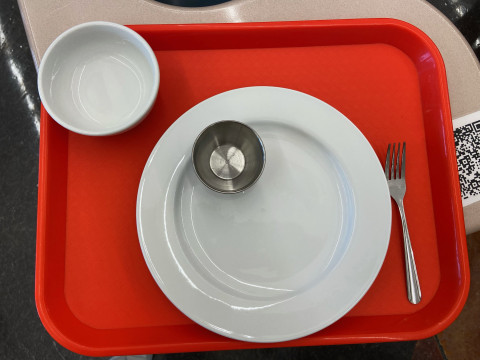Clark County Green News
What to Know about Washington's New Single-use Serviceware Law
Beginning Jan.1, 2022, businesses in Washington state can no longer be allowed to automatically provide single-use food serviceware to customers. Single-use food serviceware, like plastic forks and spoons, end up in the landfill after use. This new law is a part of a broader legislative package aimed at reducing the use of single use plastics in Washington and developing new markets for the state's recyclable plastics. Signed by Governor Jay Inslee on May 17, 2021, the legislation (SB 5022) will be implemented in phases spanning from 2021 through 2028. The law's immediate provisions were already enacted earlier this year, and involved removing state requirements for plastic containers to include the confusing "chasing arrows" around the plastic resin code and forming a stakeholder committee to make recycled content recommendations.
The upcoming 2022 requirement of the bill will impact a broad range of restaurants, cafeterias, and other food service providers. Continue reading to learn what this law means, how it will affect school cafeterias, and more important information regarding its changes.
What Does This Mean for Schools?
This new legislation will prohibit school cafeterias from automatically giving students single-use food serviceware with their meals. Single-use items included in this law are:
- Utensils (knives, spoons, forks, chopsticks, cocktail picks, stirrers, etc.)
- Straws
- Condiment packets and sauce cups
- Cold cup lids
Single-use items that are not included are:
- Plates, bowls, and cups
- Take-out food wrappers (such as those for sandwiches, burritos, etc.)
- Hot beverage lids
Furthermore, schools may no longer serve packages of single-use forks, spoons, and knives bundled together, which provide students with utensils they may not need.
School cafeterias will need to adapt to these changes by asking students if they would like single-use utensils, creating a self-serve utensil station, or transitioning to the use of reusable serviceware.
Why Reduce Single-Use Plastics?
There are several reasons why it is important to reduce the use of single-use plastics, which is the ultimate goal of this new Washington state legislation. First, the excessive use of single-use plastic items has harmful impacts on the environment. These items generate massive amounts of waste and do not break down naturally, instead becoming microplastics which degrade the health of our watersheds, wildlife, and ecosystems. Additionally, the production of plastics emits greenhouse gases at every stage of its process. From the extraction of source materials - oil and gas - to refineries where crude oil becomes plastic, the life cycle of single-use plastics is contributing to climate change.
Single-use plastic food serviceware also has negative impacts on human health. Many plastics that are commonly used as food packaging contain per- and polyfluoroalkyl substances (known as PFAs) which never leave the environment and are toxic to humans. Reducing the amount of single-use plastics in our waste stream can help limit exposure to PFAs, microplastics, and other chemicals found in plastics.
The Benefits of Reusable Serviceware
Switching from single-use to reusable food serviceware has a number of proven benefits. Not only is it cheaper in the long run, but it is also better for both human health and the environment by reducing the amount of waste associated with food service. Washougal High School switched to all reusable serviceware in the 2020-21 school year, and as a result, found that the change reduced the amount of waste coming out of their cafeteria, saved them money, and improved students' satisfaction with their meal. To learn more about Washougal's experience with reusable serviceware, check out our blog feature from earlier this year.
In the U.S., nearly 1 trillion disposable food service items are used annually. By introducing this new law prohibiting businesses from automatically giving customers single-use serviceware, Washington state is taking decisive action to reduce this number and mitigate the harmful impacts of plastic pollution on the environment and human health. Reference the Washington Department of Ecology's helpful flyer below for the law's guidelines and to find contact information if you have questions.
When you subscribe to the blog, we will send you an e-mail when there are new updates on the site so you wouldn't miss them.





